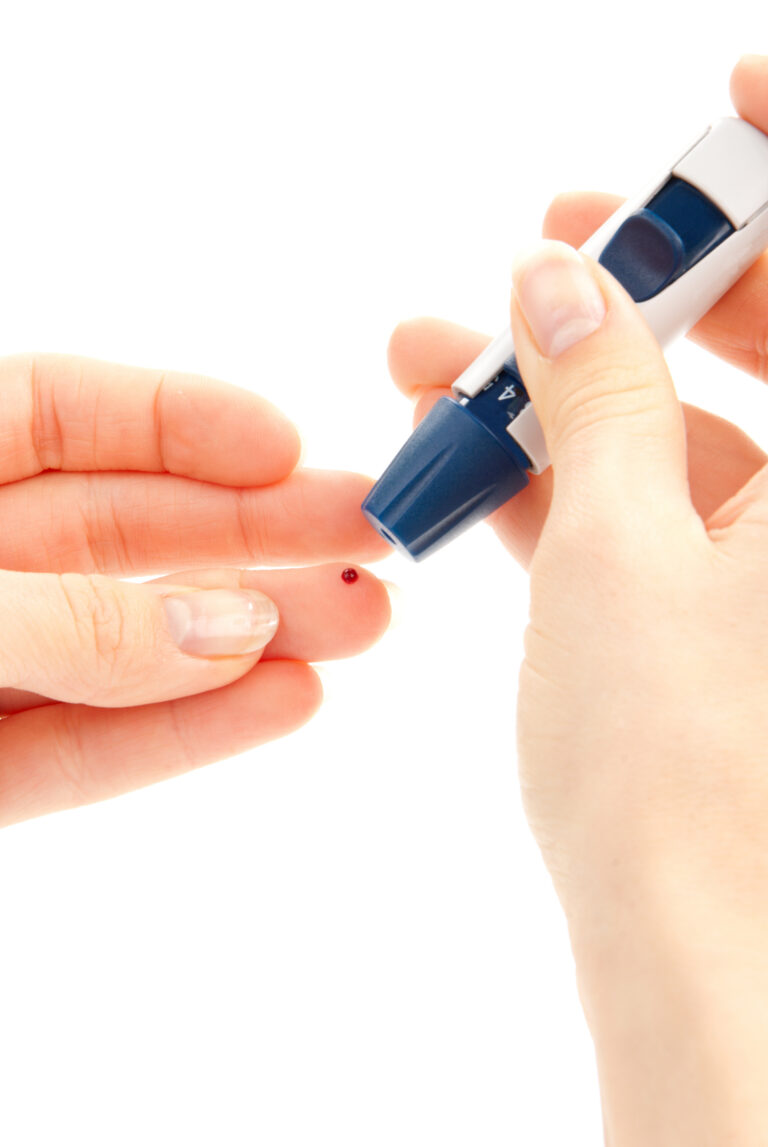I am astounded at the incidence of diabetes and hypoglycemia in this area. This is also a growing problem in the United States, with billions of dollars spent annually in treatment as well as research. However, much of the research is targeted towards finding a “cure all” pill or “vaccination” for diabetes. Much focus is placed on the management as well, but how many times do you hear about how to prevent diabetes? How many times do you hear about WHY you have sugar-handling problems in the first place?
Diet, of course is one of the biggest causes, but not the only cause. Hereditary factors may have some influence as well; however, most so-called heredity is not so much genetic transfer, but rather lifestyle transfer. In other words, you eat like your parents eat, and you deal with stress similarly. You may have the same tendency to exercise (or not), to run a busy lifestyle (or a sedentary one) or have similar emotional traits – all of which constitute sugar-handling risks.
Blood sugar (diabetes and hypoglycemia), is controlled mostly by the pancreas, adrenals and liver. The kidneys are involved in the clearance of sugar, but not in the more direct control. When looking to causative factors, all of these organs need to be looked at functionally. It is important to note that organs can have diminished function, but not necessarily show up in lab tests until there are pathological changes. At this point, they are in trouble. They can be low functioning for many years before they become of “clinical significance” enough to show up in labs. Other factors must also be considered when looking at causative factors. But first, let’s take a look at how blood sugars start to change.
When you first eat a meal, your blood sugar levels are supposed to go up gradually, and then drop gradually over a period of time. Foods rich in fiber and protein ensure this happens. Refined carbohydrates such as white rice, potatoes, white flour, cereals, and breads turn quickly to sugar, altering this gradual change of blood sugar levels. Overt sugars (candy, ice cream, cookies, cake, etc.) dramatically alter the up and down swings of blood sugar.
When you consume overt sugars or refined carbohydrates, your blood sugar raises too quickly and too high, then crashes (or comes down) too quickly and too low. This necessitates the consumption of more sugary foods or carbohydrates to raise blood sugar up once more. This cycle is commonly referred to as “roller coasting”. When blood sugar is too high, it is referred to as hyperglycemia. When too low, it is referred to as hypoglycemia. Either is bad and adversely effects many functions in the body. These swings are initially small, but get more and more dramatic over time. At some point a person may be diagnosed as clinically hypoglycemic. Finally, when this has occurred for a long period of time, the blood sugar raises and doesn’t come back down. It then takes medications to bring it down. This is called diabetes. The length of time a persons blood sugar can rollercoaster before they become diabetic is determined by many factors. Some people can only do this for a couple of years, while others can rollercoaster for 20 years or more.
How do you know if you are hypoglycemic? The most common symptoms include, fatigue, foggy thinking, shakiness, forgetfulness, afternoon drowsiness, exhaustion, depression, crying spells, indecisiveness, in-coordination, dizziness, blurred vision, unprovoked anxiety, numbish feeling in hands, arms, face, tingling lips, nervousness, irritability, stomachache or nausea, headache, sweating (cool), rapid heartbeat, confusion or disorientation, weakness, irritability. Most of this occurs if you miss or delay a meal. Note that these symptoms are commonly very slow to set in and you may only experience one of the symptoms.
Hypoglycemia effects mental function. Your reaction time slows, multitasking diminishes and short term memory deteriorates. You may experience problems with spatial perception (decreased judgment of heights or distances).
The causes are: missed or inconsistent meals. Or meals made up of coffee, candy bar or pastry. Diets high in refined carbohydrates or low protein. Protein helps to stabilize blood sugar. You also need fiber and fats to slow the rate the sugars enter the blood stream. Alcohol and certain drugs will also cause blood sugar imbalances.
To balance blood sugar, proper meal planning is essential. Eat consistently throughout the day, and include fiber, fats and protein in each meal. If you tend to be hypoglycemic or are diabetic, keep a protein bar, trail mix, and/or cut up fruit as a back up in your car or purse.
NOT a solution: Artificial sugars. Artificial sugars although they seemingly lower sugar in the blood, make it more difficult to control blood sugar. Artificial sweeteners have many problems of their own.
All the organs involved in the sugar handling mechanism have minerals, fats, proteins and enzymes by which they are dependent upon for function. If they are not receiving those nutrients, they will not function properly. The addition of these to the diet, in proper proportion and in non-synthetic form is vital. The body makes insulin naturally out of many nutrients as well, but especially out of essential fatty acids. The cell walls need essential fatty acids for flexibility in order for insulin and glucose to flow in and out of them properly. If they become inflexible, the rigidity prevents insulin or glucose uptake into the cells. The amazing thing about the body is that it has the capability to heal anything wrong with it. The body is able to heal blood sugar imbalance as well, IF the body is provided with the nutrients it needs. A dietary modification to provide these nutrients is important, but equally important is eliminating foods and drinks harmful to these organs.
©2007 Holly A. Carling, O.M.D., L.Ac., Ph.D.







